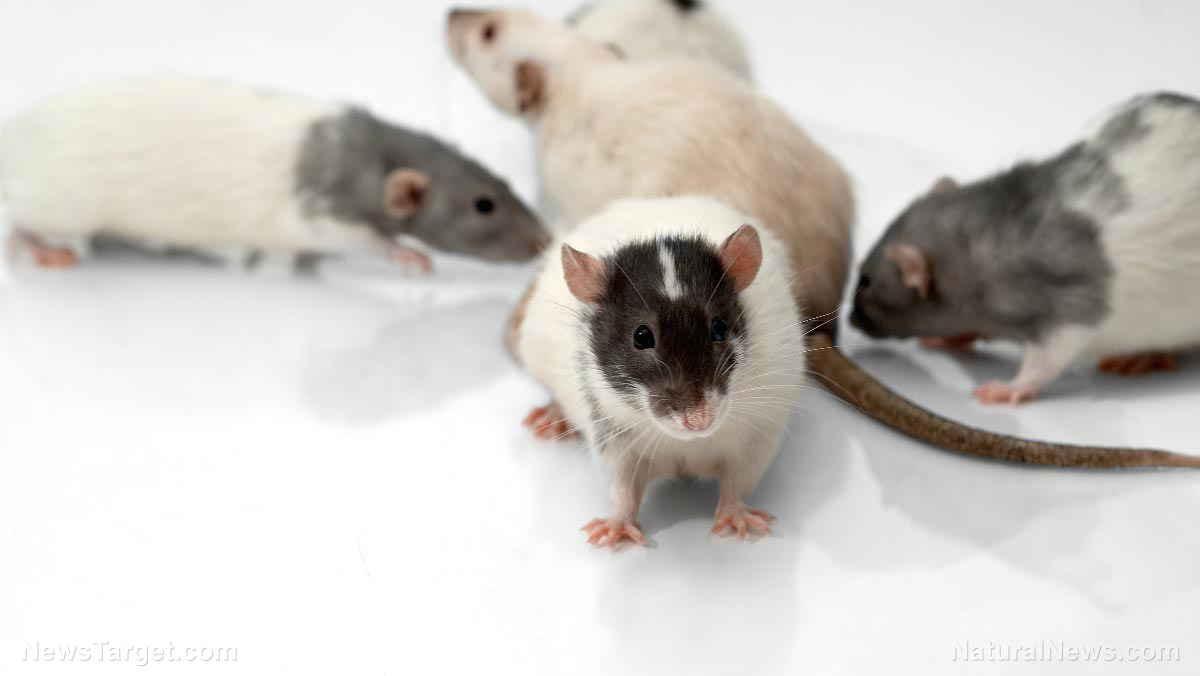Empathy is NOT unique to humans: Researchers discover that rats feel the pain of others, too
11/15/2019 / By Edsel Cook

Rats share some behavioral traits with humans. Now, a new Dutch study claims that the animals also empathize with others and share their pain.
When a person experiences physical pain, the cingulate cortex of the brain activates in response. This region also displays activity when the person sees another individual getting hurt.
Researchers at the Netherlands Institute for Neuroscience (NIN) investigated the cingulate cortex in the brain of rats. They reported that the rodents related to the suffering of others in the same way that humans did.
Further, when the researchers removed the cingulate cortex, the rats lost the ability to empathize.
Their findings may help improve the understanding of psychopathy and other mental disorders that hamper a person’s empathy. For future studies, researchers suggested modulating the neurons known to be associated with a particular emotion. (Related: Is Tylenol killing your soul? Studies confirm pain-killer reduces empathy.)
Rats feel empathy for other rodents that are in pain
The brain of humans and animals alike run on more or less the same lines. So the neurons in the cingulate cortex of the rats’ brains may have human equivalents.
Earlier studies scanned the cingulate cortex of the rats during times of injury. They established that neurons in this region cause people to experience pain.
Further, when a person sees another in pain, the brain cells in the cingulate cortex reactivate.
The NIN research team investigated this mechanism in rat brains. In their experiment, the animals witnessed other rats getting a light electric shock, enough to cause pain but not injure the subject.

The researchers measured the activity levels in the cingulate cortex of the rat watching the other animals getting shocked. They also looked at how the observing rodent behaved during the event.
Their findings showed that the rat halted in place when it saw another rat experiencing pain. At the same time, scans of its cingulate cortex showed activation of the brain cells that fired off when the observing rodent got injured in a separate experiment.
Additionally, the NIN researchers injected some rats with a chemical that prevented the brain cells in the cingulate cortex from firing off. When the drugged rats witnessed other rodents in pain, they did not freeze up.
The cingulate cortex of the brain plays a role in empathy
The team concluded that the observing rat shared the emotion of other rodents.
“What is most amazing is that this all happens in exactly the same brain region in rats as in humans,” explained NIN researcher Christian Keysers. “We had already found in humans, that brain activity of the cingulate cortex increases when we observe the pain of others, unless we are talking about psychopathic criminals, who show a remarkable reduction of this activity.”
Keyser added that human evolution might have played a considerable role in developing empathy, the ability to share the feelings of others.
Notably, roughly one in every 100 humans display signs of psychopathy. A psychopath acts in an antisocial manner, has difficulty experiencing empathy and remorse, often treats others harshly, and has a huge ego.
Currently, it is impossible to catch the activity of single neurons in the human brain. Likewise, there is no existing drug or similar approach that may modulate brain activity in the human cingulate cortex.
As such, researchers cannot replicate the NIN experiment in human volunteers to determine if the cingulate cortex also regulates empathy in people.
Sources include:
Submit a correction >>
Tagged Under:
animals, brain activity, brain function, brain health, cingulate cortex, discovery, Emotions, empathy, neurons, pain, pharmaceutical drugs, psychopath, psychopathy, Rats
This article may contain statements that reflect the opinion of the author





















